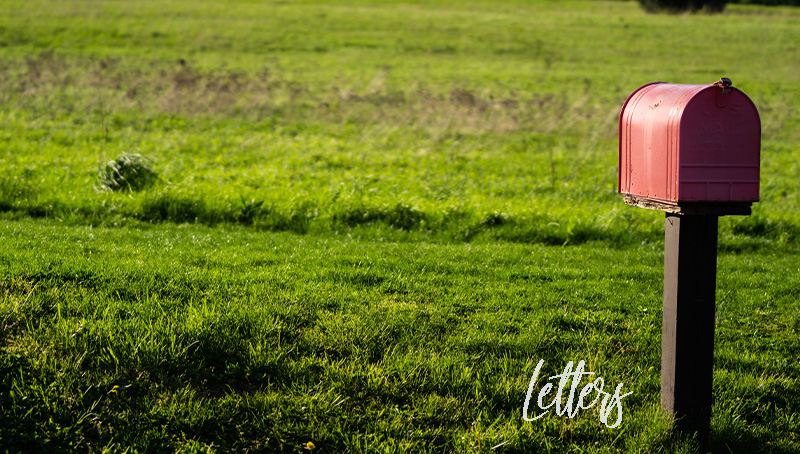Dear Editor
Thanks for the thoughtful editorial in The Review of August 8th. I did read it online, but don’t hold that against me. As you noted, what we read (and write) says a lot about us!
We are a bit stuck, aren’t we? I wonder how we get through this on a daily basis.
Information has been weaponized and we can’t tell what is truth and what, fiction. But it was ever thus. Don’t be misled into thinking that things were so much better before. I grew up in the UK when we had The Sun, The Mirror and their ilk, and each and every one of those “newspapers” made things up, or shall we say emphasized the things they wanted people to hear. Orwell spotted this long before I was born: “Political language … is designed to make lies sound truthful and murder respectable, and to give an appearance of solidity to pure wind.”
The Internet with a capital I is a power tool. Like a chainsaw or an electric drill or whatever other power tools that exist, if it’s used in the wrong way, it will hurt you, and as you also note, possibly kill you or others. Many years ago the idea of driving licenses for being allowed to use computers was raised, with the associated “you can’t use it if you don’t pass the test” (I can recall at least three or four different times from different people who should perhaps have known better). But this, and the sanctions you suggest (being banned for a year from using the internet), couldn’t possibly work, of course.
Why is this?
Because we can get around without driving a car.
But, regardless of what we may desire, we can’t live a modern life now without the internet. We really can’t. It has, to all intents and purposes, not only placed the sum of human knowledge at our fingertips (which we should be quite humble about) but it has supplanted a whole bunch of the things we need to do: pay taxes, bank, go to school (how many lives were saved because we could do this, I wonder?) and even get groceries. This will only increase and, whilst it would probably be wise to suggest people read Forster’s The Machine Stops (it won’t take long), we are now where we are.
I can hear the tuts from here: “young man, it is entirely possible to live without the internet”. Of course it is. It’s also possible to live without electricity. The results are likely similar. And I am not young. I remember the before times, and they weren’t always halcyon. Douglas Adams almost certainly didn’t come up with Vogons without encountering the bureaucracy of paper.
There is no going back.
Moreover, bear in mind this: “Everyone has the right to freedom of opinion and expression; this right includes freedom to hold opinions without interference and to seek, receive and impart information and ideas through any media regardless of frontiers.” — Article 19 of the Universal Declaration of Human Rights.
But there are things we can do. Just as with any radicalization, we can work on deradicalization. Just as with any addiction, we can counter it with acknowledgement and recovery. A start might be for compulsory internet hygiene (“don’t tweet drunk!”) and critical thinking education. We are capable, and it is an imperative.
Surely, it would be nice to think that we can ban Fox and its ilk, or kick Facebook off the internet, or manage what comes out of Twitter, but who gets to decide? Is it you? Is it me? How might that actually work? The people we are dealing with are adults and deserve respect. We cannot, dare not, sink to the same level, and different as bad and hateful.
And that is why we will never completely beat this problem. Because it’s really hard to fight anger and hate when you have one had tied behind your back. It is, however, truly the only way to fight it with dignity. There’s already enough hate. There’s so much. We could, perhaps, use a little gentleness.
If, to paraphrase Orwell once more, telling the truth is a revolutionary act, finding it is downright Sisyphean. I am profoundly grateful there are still places that it exists.
Yours in truth
Stephen Marsh, Dalkeith.


